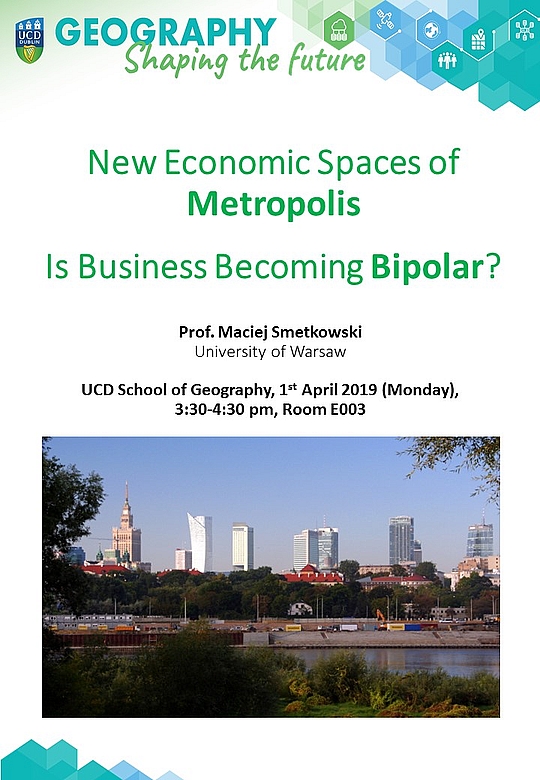New Economic Spaces of Metropolis
Wednesday, 27 March, 2019
Past Event
New Economic Spaces of Metropolis
Wednesday, 27 March, 2019
Abstract
The development of the information economy and the embeddedness of the metropolis in the global space of flows have led to the emergence of new economic spaces and the transformation of city spatial structures. In the case of Warsaw, spontaneous development processes in conditions of neoliberal spatial policy have resulted in the bipolarity of business space on a scale unprecedented in most Western European metropolises. The Mokotow Secondary Business District (MOB) (a former industrial estate) concentrates around 1.3 million m2 of office space and has become the third largest non-central business district in Europe, smaller than Paris' La Defense and London's Canary Wharf, but ahead of Amsterdam's Zuidas. However, the city centre is still a better place to incubate new business entities, and this has been supported by the dynamic development of co-working spaces, of which nearly half are located in the CBD. This presentation shows the impact of these phenomena on the city’s spatial structure and the behaviours of enterprises and their employees. The findings are used to predict whether concentration or dispersion processes, including relations between central vs. secondary business districts, collective vs. corporate types of co-working spaces, and shopping malls vs. urban/festival marketplaces, will prevail in the future. Furthermore, the role of public policies are discussed in relation to the main mechanisms that shape the spatial patterns of business activity in a metropolitan area.
All are welcome to this seminar, see details below:
